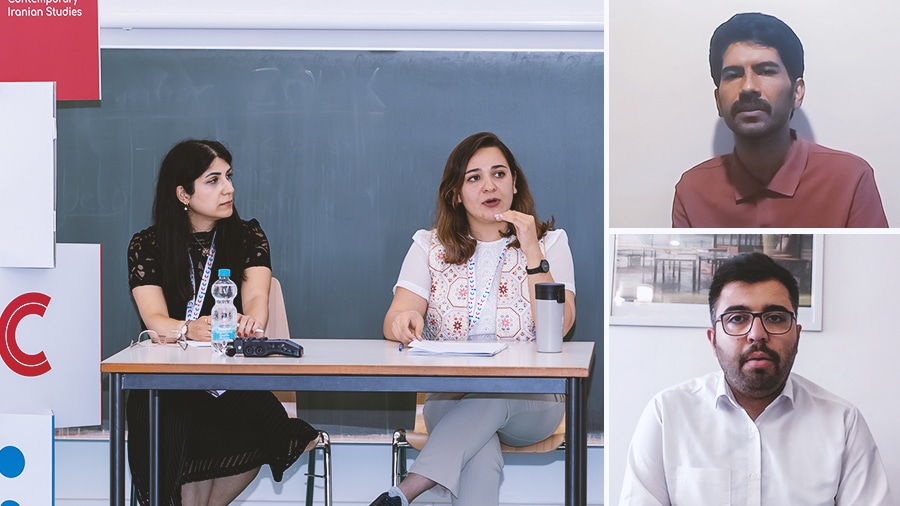Nasir Safari
Representation of Minorities in the Contemporary Iranian Social Novel
Sadegh Abdi
Investigating Fascist tendency in the History of Iranian Narrative Cinema (A Critical Examination of the Status of Afghans in Cinema)
Farzaneh Barzegar
Analysis of the Mechanisms of Marginalization of Afghan Migrants Residing in Underserved Neighborhoods in the Health Domain
Moderator: Anita Karimi
Nasir Safari explores the representation of minorities in contemporary Iranian social novels through the lens of Mikhail Bakhtin’s dialogism theory. Using four novels—Afghani Keshi, Dr. Datis, The Dark Icons of Palaces, and Those Who Are Not Us—the study dissects different narrative strategies for portraying the “Other.”
These works span diverse narrative styles, including naturalistic, realistic, modernist, and postmodernist approaches, to explore themes of otherness and cultural difference.
For instance, Afghani Keshi tackles cultural stereotypes through a naturalistic lens, while Dr. Datis employs realism to emphasize dialogue and mutual awareness between the individual and society.
In The Dark Icons of Palaces, modernist techniques reflect hegemonic forces shaping subconscious desires. Finally, Those Who Are Not Us deconstructs the boundaries between self and other, emphasizing fluidity and perpetual difference.
Sadegh Abdi critiques the depiction of Afghan characters in Iranian narrative cinema, focusing on films where their humanity is diminished and their struggles are reduced to silence.
Analyzing these portrayals reveals a pattern of marginalization, Afghanophobia, and othering within the cinematic narratives. Abdi argues that Afghan voices are often erased, with their presence relegated to passive or voiceless roles.
By examining these films, the study seeks to challenge unconscious biases and promote critical awareness of how these representations reflect and perpetuate broader societal exclusions.
Farzaneh Barzegar examines the mechanisms that marginalize Afghan migrants in the healthcare sector of impoverished neighborhoods in Iran.
Through a combination of document analysis and field interviews, the research explores how these migrants face exclusion across social, economic, and health-related domains.
The findings highlight systemic neglect and social barriers, limiting their access to adequate healthcare services and contributing to their marginalization.



